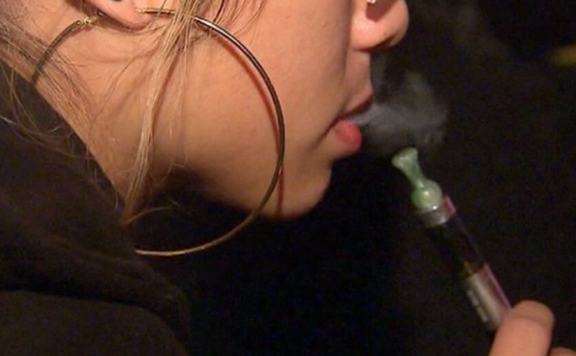Following the discovery that millions of students are vaping, a fresh warning has been issued regarding the possible health repercussions of teenagers and vaping.
The figure is astounding. Over 2.5 million middle and high school pupils have admitted to vaping. Other doctors consider vaping to be a crisis among American teenagers.
It is available in various flavors, is small enough to conceal from parents, and may become addictive to your children.
Richard Kinlaw operates a vape shop with very many teenagers as customers.
“It’s a method to ease the nerves and quit honestly it is addicting a socially acceptable thing,” Dab City Tabaco & Vape owner Richard Kinlaw said.
We’re breaking into a new study from the FDA and CDC to get a sense of what’s going on.
Electronic cigarettes are used by 14% of students in high schools and 3% of students in middle schools. Cedarville University’s Dr. Justin Coby is concerned that vaping may rewire adolescent minds.
“You have developing minds that have been exposed to nicotine, so you have damage that might cause issues with irritability, restlessness, and attention disorders,” Coby explained.
According to the survey, more than one out of every four electronic cigarette users is a daily vaper. Throughout the country, educational institutions are taking action. Last year, the Hazleton School District in Pennsylvania, for instance, deployed vape detectors.
“They detect THC levels.” “They detect low quantities of CO2,” stated Dr. Brian Uplinger, Superintendent of the Hazleton School District.
We contacted the CDC’s smoking and health office. They weren’t able to appear on camera, but released a statement advising about nicotine exposure as well as second-hand exposure to electronic cigarettes, asserting: “it can contain harmful and potentially harmful substances, such as nicotine, heavy metals such as lead, volatile organic compounds, and cancer-causing agents.” Doctors advise parents to talk to their children now, irrespective of their age.”
“These children are immature, their lungs are still developing, and if we deny them the opportunity to develop, we will have a generation of new patients.” That is my biggest worry,” Dr. Panagis Galiatsatos of the John Hopkins Tobacco Treatment Clinic said.
According to the doctor, the health ramifications for youth who establish an addiction to nicotine, as well as the potential long-term effects of vaping, are still being examined.






